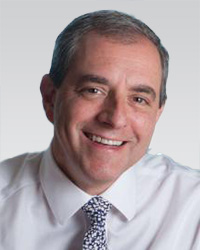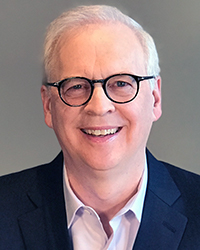Joint Dinner for ABFER and AMPF
Keynote Speech by Professor David Autor
Expertise, Artificial Intelligence, and the Work of the Future
While the utopian vision of the current Information Age was that computerization would flatten economic hierarchies by democratizing information, the opposite has occurred. Information, it turns out, is merely an input into a more consequential economic function, decision-making, which is the province of elite experts. The unique opportunity that AI offers to the labor market is to extend the relevance, reach, and value of human expertise. Because of AI’s capacity to weave information and rules with acquired experience to support decision-making, it can be applied to enable a larger set of workers possessing complementary knowledge to perform some of the higher-stakes decision-making tasks that are currently arrogated to elite experts, e.g., medical care to doctors, document production to lawyers, software coding to computer engineers, and undergraduate education to professors. Prof David's thesis is not a forecast but an argument about what is possible: AI, if used well, can assist with restoring the middle-skill, middle-class heart of the US labor market that has been hollowed out by automation and globalization.
2024
Pan Pacific Singapore, 7 Raffles Boulevard, Marina Square, Singapore 039595
Special Guest: Mr Alvin TAN
Minister of State, Ministry of Culture, Community and Youth and Ministry of Trade and Industry, Singapore and Board Member of the Monetary Authority of Singapore
“Expertise, Artificial Intelligence, and the Work of the Future”
Q&A Session
Chair:
Professor Steven J. DAVIS
Thomas W. and Susan B. Ford Senior Fellow, Hoover Institution; Senior Fellow, Stanford Institute for Economic Policy Research, William H. Abbott Distinguished Service Professor Emeritus at the University of Chicago Booth School of Business and Senior Fellow and Exco Member, ABFER
Speakers
-

Professor David AUTOR
Ford Professor of Economics and Margaret MacVicar Faculty Fellow, Massachusetts Institute of Technology
David Autor is Ford Professor in the MIT Department of Economics, codirector of the NBER Labor Studies Program and the MIT Shaping the Future of Work Initiative. His scholarship explores the labor-market impacts of technological change and globalization on job polarization, skill demands, earnings levels and inequality, and electoral outcomes.
Autor has received numerous awards for both his scholarship—the National Science Foundation CAREER Award, an Alfred P. Sloan Foundation Fellowship, the Sherwin Rosen Prize for outstanding contributions to the field of Labor Economics, the Andrew Carnegie Fellowship in 2019, the Society for Progress Medal in 2021—and for his teaching, including the MIT MacVicar Faculty Fellowship. In 2020, Autor received the Heinz 25th Special Recognition Award from the Heinz Family Foundation for his work “transforming our understanding of how globalization and technological change are impacting jobs and earning prospects for American workers.” In 2023, Autor was selected as one of two researchers across all scientific fields a NOMIS Distinguished Scientist.
The Economist magazine labeled Autor in 2019 as “The academic voice of the American worker.” Later that same year, and with equal justification, he was christened “Twerpy MIT Economist” by John Oliver of Last Week Tonight in a segment on automation and employment. -

Professor Steven J. DAVIS
Thomas W. and Susan B. Ford Senior Fellow, Hoover Institution; Senior Fellow, Stanford Institute for Economic Policy Research, William H. Abbott Distinguished Service Professor Emeritus at the University of Chicago Booth School of Business and Senior Fellow and Exco Member, ABFER
Steven Davis studies working arrangements, business dynamics, economic fluctuations, policy uncertainty and other topics. His research appears in the American Economic Review, Journal of Political Economy, Quarterly Journal of Economics and other leading scholarly journals. He hosts Economics, Applied – a video podcast series sponsored by the Hoover Institution.
Davis is also a research associate of the National Bureau of Economic Research, IZA research fellow, senior academic fellow with the Asian Bureau of Finance and Economics Research, adviser to the Monetary Authority of Singapore, visiting scholar at the Federal Reserve Bank of Atlanta, senior adviser to the Brookings Papers on Economic Activity, and an elected fellow of the Society of Labor Economists. He was on the faculty at the University of Chicago Booth School of Business for more than 35 years, including service as a chaired professor and as deputy dean of the faculty.
Davis is a co-creator of the Economic Policy Uncertainty Indices, the Survey of Business Uncertainty, the U.S. Survey of Working Arrangements and Attitudes, the Global Survey of Working Arrangements, the Work-from-Home Map project, and the Stock Market Jumps project. He cofounded and co-organizes the Asian Monetary Policy Forum, held annually in Singapore. He has received research grants from the Alfred P. Sloan Foundation, Ewing Marion Kauffmann Foundation, Templeton Foundation, John D. and Catherine T. MacArthur Foundation, U.S. National Science Foundation, and other organizations. In 2012, he was awarded the Addington Prize in Measurement for “Measuring Economic Policy Uncertainty.”
His teaching experience includes Ph.D. courses in macroeconomics and labor economics at the University of Chicago, the Massachusetts Institute of Technology, and the University of Maryland; MBA courses in macroeconomics, money and banking, business strategy, and financial institutions for Chicago Booth; and executive MBA courses in macroeconomics for Chicago Booth in Barcelona, Hong Kong, London, and Singapore. Davis has also taught undergraduate courses in microeconomics, econometrics, and money and banking at Brown University and the Massachusetts Institute of Technology.
Davis has served as an expert in many litigation matters. In the antitrust area, he has testified and consulted on market definition, dominance, competitive relationships, exclusionary practices, price discrimination, and collusive conduct. In mortgage lending and consumer finance, he has testified and consulted on class certification, liability, and damages. He has also offered testimony and analysis of damages in breach of contract and credit market discrimination. Past engagements include matters pertaining to auto loans and leases, containerboard and corrugated products, microprocessors, mortgage loans, pharmaceuticals, software products and markets, specialty grocery products, trade shows, viatical and life settlements, and workers’ compensation insurance. Outside of litigation matters, he has consulted on labor market developments, the macroeconomic outlook, capital planning in a large financial institution, and the use of text-based methods to quantify tax reform likelihoods.
Davis has written for the Atlantic, Financial Times, Forbes, Harvard Business Review, Los Angeles Times, Time, Wall Street Journal and other media. He has appeared on BBC, Bloomberg TV, CBS, CGTN, Channel News Asia, CNBC, CNN, Fox News, NBC Network News, Sinclair Broadcast Group, and the U.S. Public Broadcasting System, among others.
- 1
Supported by

Organizers

